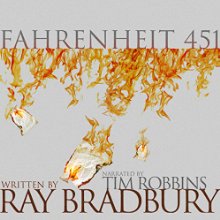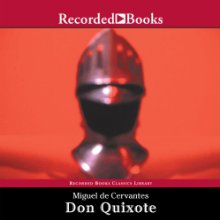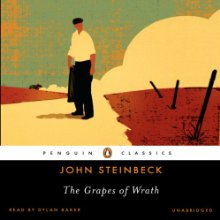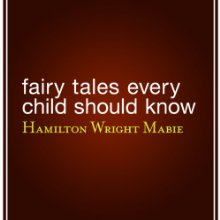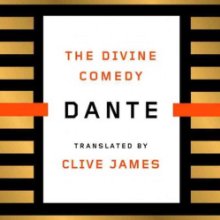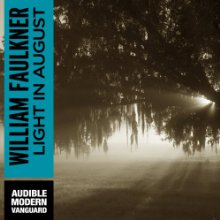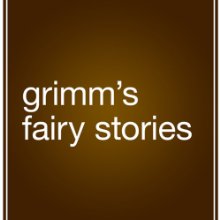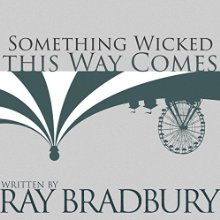Classics
See all 11069 in Classics- American Literature(1937)
- British Literature(2988)
- Drama(184)
- European Literature(2606)
- Greek & Roman(207)
- Kids & Young Adults(366)
- Nonfiction(197)
- Poetry(603)
- Shakespeare(376)
- World Literature(2244)
-
The Lost Sherlock Holmes Story?
- UNABRIDGED (8 mins)
- By Anonymous
- Narrated By Simon Vance
In 1904 the Scottish town of Selkirk held a three-day event to raise funds to replace a wooden bridge destroyed in a flood two years earlier. As part of the event, the organizers sold a story collection called The Book o' the Brig. Most of the stories were written by locals - but one stood out because it starred Holmes and Watson.
-
You be the judge...
In 1904 the Scottish town of Selkirk held a three-day event to raise funds to replace a wooden bridge destroyed in a flood two years earlier. As part of the event, the organizers sold a story collection called The Book o' the Brig. Most of the stories were written by locals - but one stood out because it starred Holmes and Watson. But was it written by Arthur Conan Doyle? Conan Doyle was known to visit the town of Selkirk, and he was even present at the opening ceremony for the fundraiser - but Holmes experts disagree. Listen to the free short story and decide for yourself.
Major Nonfiction Classics
- UNABRIDGED (1 hr and 14 mins)
- By Sun Tzu
- Narrated By Mike Vendetti
- Whispersync for Voice-ready
- UNABRIDGED (11 hrs and 31 mins)
- By Richard P. Feynman
- Narrated By Raymond Todd
- UNABRIDGED (8 hrs and 39 mins)
- By W. E. B. Du Bois
- Narrated By Richard Allen
- Whispersync for Voice-ready
- UNABRIDGED (9 hrs and 55 mins)
- By Anne Frank
- Narrated By Selma Blair
- Whispersync for Voice-ready
- UNABRIDGED (10 hrs and 8 mins)
- By Henry David Thoreau
- Narrated By Alec Sand
- Whispersync for Voice-ready
- UNABRIDGED (23 hrs and 22 mins)
- By Hannah Arendt
- Narrated By Nadia May
The Art of War
For over 2000 years, these 13 chapters attributed to Sun Tzu have been the Bible, or should have been the Bible for those intending to wage war, or who are waging war. Ho Chi Minh I am sure was very familiar with it, and don't be surprised that the Taliban is also familiar with the principles contained therein. Leaders as diverse as Mao Zedong, General Vo Nguyen Giap, General Douglas MacArthur and leaders of Imperial Japan have drawn inspiration from the work.
Surely You're Joking, Mr. Feynman!
With his characteristic eyebrow-raising behavior, Richard P. Feynman once provoked the wife of a Princeton dean to remark, "Surely you're joking, Mr. Feynman!" But the many scientific and personal achievements of this Nobel Prize-winning physicist are no laughing matter. Here, woven with his scintillating views on modern science, Feynman relates the defining moments of his accomplished life.
The Souls of Black Folk
W. E. B. Du Bois was the foremost black intellectual of his time. The Souls of Black Folk, his most influential work, is a collection of 14 beautifully written essays, by turns lyrical, historical, and autobiographical. Here, Du Bois records the cruelties of racism, celebrates the strength and pride of black America, and explores the paradoxical "double-consciousness" of African American life.
Anne Frank: The Diary of a Young Girl: The Definitive Edition
More than 50 years after its first publication, Doubleday's definitive edition of Anne Frank's famous diary generated an extraordinary amount of excitement when it was published in early 1995. Enthusiastically received by critics and readers alike, it reigned for nine weeks on The New York Times best seller list and will remain for all time the version that millions of readers will cherish.
Walden: Life in the Woods
Thoreau's classic account of the solitary life, describing his attempts to simplify his life and sort out his priorities by living alone in a cabin beside Walden Pond for nearly two years, is one of the most influential books ever written. The bible of the environmental movement, Walden vividly portrays Thoreau's reverence for nature, and his understanding of the idea that nature is made up of crucially interrelated parts.
The Origins of Totalitarianism
This classic, definitive account of totalitarianism traces the emergence of modern racism as an "ideological weapon for imperialism", beginning with the rise of anti-Semitism in Europe in the 19th century and continuing through the New Imperialism period from 1884 to World War I.
- UNABRIDGED (26 hrs and 1 min)
- By Aleksandr Solzhenitsyn
- Narrated By Frederick Davidson
- UNABRIDGED (18 hrs and 9 mins)
- By William James
- Narrated By Jim Killavey
- Whispersync for Voice-ready
- ABRIDGED (2 hrs and 57 mins)
- By Isak Dinesen
- Narrated By Julie Harris
- UNABRIDGED (9 hrs and 11 mins)
- By Thomas S. Kuhn
- Narrated By Dennis Holland
- UNABRIDGED (4 hrs and 47 mins)
- By Niccolo Machiavelli
- Narrated By Grover Gardner
- Whispersync for Voice-ready
- UNABRIDGED (5 hrs and 50 mins)
- By Stephen Hawking
- Narrated By Michael Jackson
The Gulag Archipelago, Volume l: The Prison Industry and Perpetual Motion
In this masterpiece, Solzhenitsyn has orchestrated thousands of incidents and individual histories into one narrative of unflagging power and momentum. Written in a tone that encompasses Olympian wrath, bitter calm, savage irony, and sheer comedy, it combines history, autobiography, documentary, and political analysis as it examines in its totality the Soviet apparatus of repression from its inception following the October Revolution of 1917.
The Varieties of Religious Experience
The Varieties of Religious Experience is considered to be the classic work in the field. To quote Wikipedia, "James was most interested in understanding personal religious experience. The importance of James to the psychology of religion - and to psychology more generally - is difficult to overstate. He discussed many essential issues that remain of vital concern today. What makes James writing so special is that he could take a very complex subject and, without watering it down, make it understandable to 'the rest of us.'"
Out of Africa
Danish countess Karen Blixen, known as Isak Dinesen, ran a coffee plantation in Kenya in the years when Africa remained a romantic and formidable continent to most Europeans. Out of Africa is her account of her life there, with stories of her respectful relationships with the Masai, Kikuyu, and Somali natives who work on her land; the European friends who visit her; and the imposing permanence of the wild, high land itself. Stage and television actress Julie Harris delivers a reading that is emotionally charged and reflective, recreating Dinesen's lively appreciation for the land she loved so much.
The Structure of Scientific Revolutions
Named one of "The Hundred Most Influential Books Since the Second World War" by the Times Literary Supplement, and one of the "100 Best Nonfiction" books by the Modern Library, Thomas S. Kuhn's The Structure of Scientific Revolutions is a landmark of scientific thought. Written in 1962, Kuhn's book took an entirely different view of how scientists perceived and achieved changes in basic theoretical assumptions - what he termed "paradigm shifts".
The Prince
From his perspective in Renaissance Italy, Machiavelli's aim in this classic work was to resolve conflict with the ruling prince, Lorenzo de Medici. Machiavelli based his insights on the way people really are rather than an ideal of how they should be. This is the world's most famous master plan for seizing and holding power. Astonishing in its candor The Prince even today remains a disturbingly realistic and prophetic work on what it takes to be a prince, a king, or a president.
A Brief History of Time
This landmark book is for those of us who prefer words to equations; this is the story of the ultimate quest for knowledge, the ongoing search for the secrets at the heart of time and space. Its author, Stephen W. Hawking, is arguably the greatest mind since Einstein. From the vantage point of the wheelchair, where he has spent the last 20 years trapped by Lou Gehrig's disease, Professor Hawking has transformed our view of the universe. A Brief History of Time is Hawking's classic introduction to today's most important scientific ideas.
- UNABRIDGED (14 hrs and 27 mins)
- By Truman Capote
- Narrated By Scott Brick
- Whispersync for Voice-ready
- UNABRIDGED (13 hrs and 54 mins)
- By St. Augustine
- Narrated By Richard Ferrone
- UNABRIDGED (10 hrs and 37 mins)
- By Rachel Carson
- Narrated By Kaiulani Lee
- UNABRIDGED (5 hrs and 1 min)
- By Virginia Woolf
- Narrated By Juliet Stevenson
- Whispersync for Voice-ready
- UNABRIDGED (9 hrs and 47 mins)
- By Vladimir Nabokov
- Narrated By Stefan Rudnicki
- Whispersync for Voice-ready
- UNABRIDGED (7 hrs and 6 mins)
- By C.S. Lewis
- Narrated By Julian Rhind-Tutt
- Whispersync for Voice-ready
In Cold Blood
Why we think it’s a great listen: It’s a story that most people know, told here in an unforgettable way – an audio masterpiece that rivals the best thrillers, thanks to Capote genre-defining words and Brick’s subtle but powerful characterizations. On November 15, 1959, in the small town of Holcomb, Kansas, four members of the Clutter family were savagely murdered by blasts from a shotgun held a few inches from their faces. There was no apparent motive for the crime, and there were almost no clues.
Confessions
Saint Augustine is one of history's most prolific geniuses. With great eloquence and passion, his Confessions - a masterpiece of Western literature - explores enduring questions that continue to stir millions. Perhaps the most moving record of a soul's journey to grace, Confessions appears midway in Saint Augustine's prodigious body of theological writings and remains his most influential work.
Silent Spring
First published in 1962, Silent Spring can single-handedly be credited with sounding the alarm and raising awareness of humankind's collective impact on its own future through chemical pollution. No other book has so strongly influenced the environmental conscience of Americans and the world at large.
A Room of One's Own
A Room of One's Own, based on a lecture given at Girton College Cambridge, is one of the great feminist polemics. Woolf's blazing polemic on female creativity, the role of the writer, and the silent fate of Shakespeare's imaginary sister remains a powerful reminder of a woman's need for financial independence and intellectual freedom.
Speak Memory: An Autobiography Revisited
Speak, Memory, first published in 1951 as Conclusive Evidence and then assiduously revised in 1966, is an elegant and rich evocation of Nabokov’s life and times, even as it offers incisive insights into his major works, including Lolita, Pnin, Despair, The Gift, The Real Life of Sebastian Knight, and The Luhzin Defense.
Mere Christianity
One of the most popular and beloved introductions to the concept of faith ever written, Mere Christianity has sold millions of copies worldwide. This audiobook brings together C. S. Lewis' legendary radio broadcasts during the war years, in which he set out simply to "explain and defend the belief that has been common to nearly all Christians at all times."
- ABRIDGED (5 hrs and 53 mins)
- By Charles Darwin
- Narrated By Richard Dawkins
- UNABRIDGED (6 hrs and 59 mins)
- By Milton Friedman
- Narrated By Michael Edwards
- Whispersync for Voice-ready
- UNABRIDGED (18 hrs and 5 mins)
- By Jane Jacobs, Jason Epstein (introduction)
- Narrated By Donna Rawlins
- UNABRIDGED (6 hrs and 12 mins)
- By Booker T. Washington
- Narrated By Noah Waterman
- Whispersync for Voice-ready
- UNABRIDGED (10 hrs and 26 mins)
- By Lytton Strachey
- Narrated By Robert Bethune
- UNABRIDGED (8 hrs and 25 mins)
- By George Orwell
- Narrated By Frederick Davidson
- Whispersync for Voice-ready
On the Origin of Species
Richard Dawkins, author of The God Delusion and a life-long committed Darwinist, abridges and reads this special audio version of Charles Darwin's famous book. A literally world-changing book, Darwin put forward the anti-religious and scientific idea that humans in fact evolved over millions of generations from animals, starting with fish, all the way up through the ranks to apes, then to our current form.
Capitalism and Freedom
Milton Friedman argues that the appropriate role of competitive capitalism occurs when the majority of our economic activity flows through private enterprise within a free-market environment. This is unequivocally the most effective device for achieving economic freedom, as well as the necessary condition in which political freedom can be attained. Friedman's arguments are positively bold, enlightening, and impacting. Among the specific topics he addresses are "The Control of Money", "Fiscal Policy", "Capitalism and Discrimination", and "Social Welfare Measures".
The Death and Life of Great American Cities: 50th Anniversary Edition
Thirty years after its publication, The Death and Life of Great American Cities was described by The New York Times as "perhaps the most influential single work in the history of town planning....[It] can also be seen in a much larger context. It is first of all a work of literature; the descriptions of street life as a kind of ballet and the bitingly satiric account of traditional planning theory can still be read for pleasure even by those who long ago absorbed and appropriated the book's arguments."
Up from Slavery
Booker T. Washington fought his way out of slavery to become an educator, statesman, political shaper, and proponent of the "do-it-yourself" idea. In his autobiography, he describes his early life as a slave on a Virginia plantation, his steady rise during the Civil War, his struggle for education, his schooling at the Hampton Institute, and his years as founder and president of the Tuskegee Institute in Alabama, which was devoted to helping minorities learn useful, marketable skills.
Eminent Victorians: Cardinal Manning, Florence Nightingale, Dr. Arnold, General Gordon
When Lytton Strachey published Emininent Victorians, he took the general perception of the Victorian age among English-speaking readers and turned it upside-down. Four of the most eminent and idealized heroic figures of the Victorian age came under his witty and unsparing gaze and emerged, astonishingly enough, as human beings.
Homage to Catalonia
In 1936, George Orwell went to Spain to report on the civil war and instead joined the P.O.U.M. militia to fight against the Fascists. In this now justly famous account of his experience, he describes both the bleak and the comic aspects of trench warfare on the Aragon front, the Barcelona uprising in May 1937, his nearly fatal wounding just two weeks later, and his escape from Barcelona into France after the P.O.U.M. was suppressed.
New Releases
See All >-
The Dabblers
- UNABRIDGED (20 mins)
- By W. F. Harvey
- Narrated By Cathy Dobson
William Fryer Harvey (1885-1937) was an English writer of short stories, most notably in the mystery and horror genres. Born into a wealthy Quaker family in Yorkshire, he went to Balliol College, Oxford, and took a degree in medicine at Leeds. Ill health dogged him, however, and he devoted much of his recuperation to writing short stories. "The Dabblers" is a mysterious tale of strange rituals in the grounds of a boarding school on a particular night in June every year. Weird singing can be heard...
-
Fifty Classic Horror Stories
- UNABRIDGED (25 hrs and 36 mins)
- By E. F. Benson, W. W. Jacobs, W. F. Harvey, and others
- Narrated By Cathy Dobson
Fifty of the greatest classic horror stories ever written: 1. "The Beast with Five Fingers" by W. F. Harvey 2. "The Well" by W. W. Jacobs 3. "The Nightmare Room" by Sir Arthur Conan Doyle 4. "The End of a Show" by Barry Pain 5. "Bagnell Terrace" by E. F. Benson 6. "Fingers of a Hand" by H. D. Everett 7. "The Interruption" by W. W. Jacobs 8. "Gavon’s Eve" by E. F. Benson 9. "The Ring of Thoth" by Sir Arthur Conan Doyle 10. "Moon’s Gibbet" by Egerton Castle 11. "The Mystery of Sasassa Valley" by Sir Arthur Conan Doyle
-
Green Tea
- UNABRIDGED (1 hr and 26 mins)
- By Joseph Sheridan Le Fanu
- Narrated By Cathy Dobson
Joseph Thomas Sheridan Le Fanu (1814-1873) was an Irish writer of Gothic tales and mystery novels. He was the leading ghost-story writer of the 19th century and was central to the development of the genre in the Victorian era. "Green Tea" is an iconic gothic horror story which tells the story of a tea-drinking clergyman, haunted by a terrifying black monkey, which follows him wherever he goes, urging him to dreadful deeds and blighting his life in every way.
-
Fifty Tales of Mystery and Adventure
- UNABRIDGED (30 hrs and 55 mins)
- By Arthur Conan Doyle, G. K. Chesterton, E. F. Benson, and others
- Narrated By Cathy Dobson
A gripping collection of the very best classic mystery and adventure stories. 1. "Rose Rose" by Barry Pain 2. "The Perfect Crime" by Seamark 3. "The Well" by W. W. Jacobs 4. "The Tea-Leaf" by Edgar Jepson and Robert Eustace 5. "The Step" by E. F. Benson 6. "The Queer Feet" by G. K. Chesterton 7. "The Beast with Five Fingers" by W. F. Harvey 8. "The Enemy" by Hugh Walpole 9. "An Impromptu Dance" by A. J. Alan 10. "The Red-Headed League" by Sir Arthur Conan Doyle 11. "The Wedding Guest" by Guy Boothby
-
A Royal Compliment
- UNABRIDGED (7 mins)
- By Mark Twain
- Narrated By Maria Tolkacheva
The story "A Royal Compliment" by Mark Twain was included in the collection The Curious Republic of Gondour and Other Whimsical Sketches. In Twain's stories we can find notes of social satire. He traveled a lot and understood how imperfect humans are. In this story the author speculates on politics.
-
Good Humour
- UNABRIDGED (8 mins)
- By Hans Christian Andersen
- Narrated By Glenn Hascall
Beloved author Hans Christian Andersen may open up a view of what his family life may have been like. Humor abounds in his description of his father's profession - even as grave as most might have viewed death. Perhaps a bit different than his usual fables, it still rings with the same mischief and thoughtful response to life.
-
The Calamander Chest
- UNABRIDGED (19 mins)
- By Joseph Payne Brennan
- Narrated By Mike Vendetti
A bargain trunk turns out not to be such a bargain when the creepy white finger with the black nail exudes from the crack in the trunk, and things go downhill from there.
-
Dream
- UNABRIDGED (7 mins)
- By O. Henry
- Narrated By Maria Tolkacheva
"The Dream" is O. Henry's last story. He said, "I want to show the public that I can write something new - new for me, I mean - a story without slang, a straightforward dramatic plot starting treated in a way that will come nearer my idea of real story-writing." This story is atypical for O. Henry's style. It is full of dramatic effects and shocking descriptions of death-row prisoners' lives.
-
The Apology of Socrates
- UNABRIDGED (1 hr and 13 mins)
- By Plato
- Narrated By Bob Neufeld
Socrates, at 70+ years of age, defends himself against charges of corrupting the youth of Athens, atheism, and other false claims before accepting his fate and starting his final days on Earth.
-
By Courier
- UNABRIDGED (8 mins)
- By O. Henry
- Narrated By Maria Tolkacheva
The accountant of bank, the convict, the druggist, the writer - all these words are suitable for the same person - William Sidney Porter, world renowned as O. Henry. If you appreciate humor, adore laughing, so get acquainted with the story By Courier.
-
The Vitagraphoscope
- UNABRIDGED (6 mins)
- By O. Henry
- Narrated By Maria Tolkacheva
"The Vitagraphoscope" is a final story from Cabbages and Kings, inspired by O. Henry's travelling to Honduras. This is a short note describing different themes. Discover more of the classics of American Literature!
-
Fickle Fortune, or How Gladys Hustled
- UNABRIDGED (7 mins)
- By O. Henry
- Narrated By Maria Tolkacheva
This is a story of a poor man searching for a simple boarding house for his family, who only finds expensive rooms of aristocrats. This man doesn't want to pay for someone's title, he only wants a roof over his head and tasty corned beef, what seems impossible in this "high-toned" town. How will the story end? Will the character get what he wants? Make sure to check it!
-
A Little Talk About Mobs
- UNABRIDGED (7 mins)
- By O. Henry
- Narrated By Maria Tolkacheva
"A Little Talk About Mobs" is included in the short story collection, called Waifs and Strays, published in 1910. In the story, a New Yorker, motorman Jerry and policeman Mike share their collision experiences with the angry mob. They talk that the crowd, ready to lynch anyone caused her displeasure, in fact, could not do harm to a cat.
-
Heart of Darkness
- UNABRIDGED (3 hrs and 25 mins)
- By Joseph Conrad
- Narrated By Ian Hadley
The story of Charlie Marlow's voyage from the civilized world of Europe into the primitive interior of the Congo of Africa. As a manager of a Belgian ivory company, Marlow travels into the interior of Africa up the Congo River to meet Kurtz, an agent of the ivory company. Deep in the interior of Africa, Marlow finds Kurtz living among the savage natives, who revere him as a god.
-
Suite Homes and Their Romance
- UNABRIDGED (10 mins)
- By O. Henry
- Narrated By Glenn Hascall
In the classic humor stylings of O. Henry, this story follows a couple with a dubious reputation. They are disreputable cons who have played the game well enough to get by with more than they should, but when the wife seems to be spending more than she should the husband enlists the help of the police. She is, in fact, involved in nefarious deeds, but even then humor abounds in the cold hard facts of her choices.
-
William Shakespeare's Macbeth
- UNABRIDGED (1 hr and 47 mins)
- By William Shakespeare
- Narrated By Daniel Moore
A solo recording of Macbeth in an American dialect.
-
The Kith of the Elf Folk
- UNABRIDGED (34 mins)
- By Lord Dunsany
- Narrated By Mike Vendetti
This is a happy, feel-good tale by Lord Dunsany aka Edward Plunkett, the 18th Baron of Dunsany. Read by award-winning narrator Mike Vendetti, the wild things take you into their world.
-
Martin Guerre: Celebrated Crimes, Book 12
- UNABRIDGED (1 hr and 57 mins)
- By Alexandre Dumas père
- Narrated By Robert Bethune
In this, the twelfth of the series, Dumas, the novelist-historian, is back in full force. His subject is a well-documented historical fact: that a man named Arnaud du Thil was able to pass for two years as Martin Guerre, deceiving villages, neighbors, friends, family, and even the wife of Martin Guerre with equal success, even to the point of becoming the father of two children by Martin Guerre's wife.
-
Lost Treasure
- UNABRIDGED (13 mins)
- By Caradoc Evans
- Narrated By Cathy Dobson
David Caradoc Evans (1878-1945), was a Welsh story writer, novelist and playwright. Evans was brought up in a Welsh-speaking community in Cardiganshire, and although he learned English at school and always wrote in English, his work is soaked in Welsh syntax and vocabulary. Evans left school at 14 and worked throughout Wales in a series of menial jobs before moving to London, where he worked as a draper's apprentice.
-
In the Twilight
- UNABRIDGED (11 mins)
- By Lord Dunsanay
- Narrated By Mike Vendetti
Did he drown? Is he dreaming? Did he almost drown? Only Lord Dunsany, aka Edward Plunkett, the eighteenth baron of Dunsany, knows for sure.
Classics of The Great War
- UNABRIDGED (6 hrs and 55 mins)
- By Erich Maria Remarque
- Narrated By Frank Muller
- Whispersync for Voice-ready
- ABRIDGED (6 hrs and 11 mins)
- By Sebastian Faulks
- Narrated By Samuel West
- UNABRIDGED (38 hrs and 18 mins)
- By Ford Madox Ford
- Narrated By Steven Crossley
- Whispersync for Voice-ready
- UNABRIDGED (10 hrs and 59 mins)
- By E. E. Cummings
- Narrated By Ken Kliban
- Whispersync for Voice-ready
- UNABRIDGED (7 hrs and 42 mins)
- By Dalton Trumbo
- Narrated By William Dufris
- Whispersync for Voice-ready
- UNABRIDGED (8 hrs and 37 mins)
- By Ernest Hemingway
- Narrated By John Slattery
- Whispersync for Voice-ready
All Quiet on the Western Front
Paul Bäumer is just 19 years old when he and his classmates enlist. They are Germany’s Iron Youth who enter the war with high ideals and leave it disillusioned or dead. As Paul struggles with the realities of the man he has become, and the world to which he must return, he is led like a ghost of his former self into the war’s final hours. All Quiet is one of the greatest war novels of all time, an eloquent expression of the futility, hopelessness and irreparable losses of war.
Birdsong
Set before and during the Great War, Birdsong captures the drama of that era on both a national and a personal scale. It is the story of Stephen, a young Englishman, who arrives in Amiens in 1910. His life goes through a series of traumatic experiences, from the clandestine love affair that tears apart the family with whom he lives to the unprecedented experience of the war itself.
Parade's End
First published as four separate novels (Some Do Not…, No More Parades, A Man Could Stand Up, and The Last Post) between 1924 and 1928, Parade’s End explores the world of the English ruling class as it descends into the chaos of war. Christopher Tietjens is an officer from a wealthy family who finds himself torn between his unfaithful socialite wife, Sylvia, and his suffragette mistress, Valentine. A profound portrait of one man’s internal struggles during a time of brutal world conflict, Parade’s End bears out Graham Greene’s prediction that "there is no novelist of this century more likely to live than Ford Madox Ford."
The Enormous Room
The Enormous Room is a 1922 autobiographical novel by the poet and novelist E. E. Cummings about his temporary imprisonment in France during World War I. Drawing on his experiences in France as a volunteer ambulance-driver, Cummings recounts the series of mistakes that led to his arrest and imprisonment for treason. This edition restores much of the original manuscript.
Johnny Got His Gun
This was no ordinary war. This was a war to make the world safe for democracy. And if democracy was made safe, then nothing else mattered - not the millions of dead bodies, nor the thousands of ruined lives. This is no ordinary novel. This is the story of a young American soldier terribly maimed in World War I - he "survives" armless, legless, and faceless, but with his mind intact.
A Farewell to Arms
The best American novel to emerge from World War I, A Farewell to Arms is the unforgettable story of an American ambulance driver on the Italian front and his passion for a beautiful English nurse.
- UNABRIDGED (2 hrs)
- By Wilfred Owen, Siegfried Sassoon, Isaac Rosenberg
- Narrated By Michael Maloney, Jasper Britton
- UNABRIDGED (4 hrs and 3 mins)
- By Michael Morpurgo
- Narrated By John Keating
- Whispersync for Voice-ready
- UNABRIDGED (28 mins)
- By Wilfred Owen, Seigfried Sassoon, Rupert Brooke
- Narrated By David Moore
- ABRIDGED (6 hrs and 40 mins)
- By Jaroslav Hasek
- Narrated By David Horovitch
- ABRIDGED (4 hrs and 58 mins)
- By Robert Graves
- Narrated By Martin Jarvis
- UNABRIDGED (23 hrs and 23 mins)
- By Boris Pasternak, Richard Pevear (translator), Larissa Volokhonsky (translator)
- Narrated By John Lee
Poets of the Great War
Here are the extraordinary writings of a generation who fought through a war of unprecedented destructive power, and who had to find new voices to express the horror of what they discovered. The great names - Owen, Sassoon - are fully represented, but there are also many poems by lesser-known or unexpected figures, ranging from serving soldiers like Isaac Rosenberg and Richard Aldington to women such as Edith Nesbit and Vera Brittain.
War Horse
In 1914, a beautiful foal with a distinctive cross on his nose is sold to the Army and thrust into the midst of the war on the Western front. But his heart aches for Albert, the farmer's son he left behind. Will he ever see his true master again?
The War Poets
Arguably some of the most powerful poetry ever written. Classic works written during World War I by Wilfred Owen, Siegried Sassoon and Rupert Brooke.
The Good Soldier Svejk
A soldier in the First World War who never actually sees any combat, Josef Svejk is the awkward protagonist - and none of the other characters can quite decide whether his bumbling efforts to get to the front are genuine or not. Often portrayed as one of the first anti-war novels, Hasek's classic satire is a tour-de-force of modernist writing, influencing later writers such as Hemingway, Faulkner and Joseph Heller.
Goodbye to All That
A famous autobiographical account of life as a young soldier in the first World War trenches. Robert Graves, who went on to write I, Claudius, has given to posterity here one of the all-time great insights into the experience of war.
Doctor Zhivago
In celebration of the 40th anniversary of its original publication, here is a new translation of the classic story of the life and loves of a poet/physician during the turmoil of the Russian Revolution. Taking his family from Moscow to what he hopes will be shelter in the Ural Mountains, Zhivago finds himself instead embroiled in the battle between the Whites and the Reds. Set against this backdrop of cruelty and strife is Zhivago’s love for the tender and beautiful Lara.
Best Sellers
See All >-
Winnie-the-Pooh: A.A. Milne's Pooh Classics, Volume 1
- UNABRIDGED (2 hrs and 46 mins)
- By A. A. Milne
- Narrated By Peter Dennis
- Whispersync for Voice-ready
Come with us to an Enchanted Place, a forest where Winnie-the-Pooh lived with Piglet, Rabbit, Owl, Eeyore, Kanga, and Little Roo. The stories are about Christopher Robin and these good companions having wonderful times getting in and out of trouble. It is all very exciting and, really, quite thrilling no matter how young or old you may be. It is painful to try and imagine what the world would be like without them.
-
To Kill a Mockingbird
- UNABRIDGED (12 hrs and 17 mins)
- By Harper Lee
- Narrated By Sissy Spacek
Harper Lee’s Pulitzer prize-winning masterwork of honor and injustice in the deep south - and the heroism of one man in the face of blind and violent hatred, available now for the first time as a digital audiobook. One of the best-loved stories of all time, To Kill a Mockingbird has been translated into more than 40 languages, sold more than 30 million copies worldwide, served as the basis for an enormously popular motion picture, and was voted one of the best novels of the 20th century by librarians across the country.
-
The Fellowship of the Ring: Book One in The Lord of the Rings Trilogy
- UNABRIDGED (19 hrs and 11 mins)
- By J. R. R. Tolkien
- Narrated By Rob Inglis
- Whispersync for Voice-ready
The Fellowship of the Ring, the first volume in the trilogy, tells of the fateful power of the One Ring. It begins a magnificent tale of adventure that will plunge the members of the Fellowship of the Ring into a perilous quest and set the stage for the ultimate clash between the powers of good and evil.
-
The Prince
- UNABRIDGED (4 hrs and 47 mins)
- By Niccolo Machiavelli
- Narrated By Grover Gardner
- Whispersync for Voice-ready
From his perspective in Renaissance Italy, Machiavelli's aim in this classic work was to resolve conflict with the ruling prince, Lorenzo de Medici. Machiavelli based his insights on the way people really are rather than an ideal of how they should be. This is the world's most famous master plan for seizing and holding power. Astonishing in its candor The Prince even today remains a disturbingly realistic and prophetic work on what it takes to be a prince, a king, or a president.
-
The Hobbit
- UNABRIDGED (11 hrs and 8 mins)
- By J. R. R. Tolkien
- Narrated By Rob Inglis
- Whispersync for Voice-ready
Like every other hobbit, Bilbo Baggins likes nothing better than a quiet evening in his snug hole in the ground, dining on a sumptuous dinner in front of a fire. But when a wandering wizard captivates him with tales of the unknown, Bilbo becomes restless. Soon he joins the wizard’s band of homeless dwarves in search of giant spiders, savage wolves, and other dangers. Bilbo quickly tires of the quest for adventure and longs for the security of his familiar home. But before he can return to his life of comfort, he must face the greatest threat of all.
-
Great Expectations
- UNABRIDGED (18 hrs and 31 mins)
- By Charles Dickens
- Narrated By Simon Prebble
- Whispersync for Voice-ready
One of the most revered works in English literature, Great Expectations traces the coming of age of a young orphan, Pip, from a boy of shallow aspirations into a man of maturity. From the chilling opening confrontation with an escaped convict to the grand but eerily disheveled estate of bitter old Miss Havisham, all is not what it seems in Dickens’ dark tale of false illusions and thwarted desire.
-
The Blue Fairy Book
- UNABRIDGED (14 hrs and 21 mins)
- By Andrew Lang
- Narrated By Angele Masters
- Whispersync for Voice-ready
Here are some of the finest fairytales from around the world - most of them old favorites: "Sleeping Beauty," "Rumpelstiltskin," "Cinderella," three from "The Arabian Nights," and many more. Andrew Lang was one of the most famous literary critics around 1900. He also edited a series of children's fable books that preserved and illustrated a host of tales which are still used extensively today.
-
The Two Towers: Book Two in the Lord of the Rings Trilogy
- UNABRIDGED (16 hrs and 40 mins)
- By J. R. R. Tolkien
- Narrated By Rob Inglis
- Whispersync for Voice-ready
The Two Towers is the second volume of J.R.R. Tolkien's epic saga, The Lord of the Rings. The Fellowship has been forced to split up. Frodo and Sam must continue alone towards Mount Doom, where the One Ring must be destroyed. Meanwhile, at Helm’s Deep and Isengard, the first great battles of the War of the Ring take shape. In this splendid, unabridged audio production of Tolkien’s great work, all the inhabitants of a magical universe - hobbits, elves, and wizards - spring to life. Rob Inglis’ narration has been praised as a masterpiece of audio.
-
The Return of the King: Book Three in the Lord of the Rings Trilogy
- UNABRIDGED (18 hrs and 18 mins)
- By J. R. R. Tolkien
- Narrated By Rob Inglis
- Whispersync for Voice-ready
The Return of the King is the towering climax to J. R. R. Tolkien’s trilogy that tells the saga of the hobbits of Middle-earth and the great War of the Rings. In this concluding volume, Frodo and Sam make a terrible journey to the heart of the Land of the Shadow in a final reckoning with the power of Sauron. In addition to narrating the prose passages, Rob Inglis sings the trilogy’s songs and poems a capella, using melodies composed by Inglis and Claudia Howard, the Recorded Books studio director.
-
1984: New Classic Edition
- UNABRIDGED (11 hrs and 26 mins)
- By George Orwell
- Narrated By Simon Prebble
- Whispersync for Voice-ready
George Orwell depicts a gray, totalitarian world dominated by Big Brother and its vast network of agents, including the Thought Police - a world in which news is manufactured according to the authorities' will and people live tepid lives by rote. Winston Smith, a hero with no heroic qualities, longs only for truth and decency. But living in a social system in which privacy does not exist and where those with unorthodox ideas are brainwashed or put to death, he knows there is no hope for him.
-
The Great Gatsby
- UNABRIDGED (4 hrs and 52 mins)
- By F. Scott Fitzgerald
- Narrated By Jake Gyllenhaal
- Whispersync for Voice-ready
F. Scott Fitzgerald’s classic American novel of the Roaring Twenties is beloved by generations of readers and stands as his crowning work. This new audio edition, authorized by the Fitzgerald estate, is narrated by Oscar-nominated actor Jake Gyllenhaal (Brokeback Mountain). Gyllenhaal's performance is a faithful delivery in the voice of Nick Carraway, the Midwesterner turned New York bond salesman, who rents a small house next door to the mysterious millionaire Jay Gatsby....
-
Dracula [Audible Edition]
- UNABRIDGED (15 hrs and 28 mins)
- By Bram Stoker
- Narrated By Alan Cumming, Tim Curry, Simon Vance, and others
- Whispersync for Voice-ready
The modern audience hasn't had a chance to truly appreciate the unknowing dread that readers would have felt when reading Bram Stoker's original 1897 manuscript. Most modern productions employ campiness or sound effects to try to bring back that gothic tension, but we've tried something different. By returning to Stoker's original storytelling structure - a series of letters and journal entries voiced by Jonathan Harker, Dr. Van Helsing, and other characters - with an all-star cast of narrators, we've sought to recapture its originally intended horror and power.
-
Fahrenheit 451
- UNABRIDGED (5 hrs and 1 min)
- By Ray Bradbury
- Narrated By Tim Robbins
- Whispersync for Voice-ready
Guy Montag is a fireman. In his world, where television rules and literature is on the brink of extinction, firemen start fires rather than put them out. His job is to destroy the most illegal of commodities, the printed book, along with the houses in which they are hidden. Montag never questions the destruction and ruin his actions produce, returning each day to his bland life and wife, Mildred, who spends all day with her television "family."
-
Pride and Prejudice
- UNABRIDGED (11 hrs and 30 mins)
- By Jane Austen
- Narrated By Carolyn Seymour
- Whispersync for Voice-ready
The provincial Bennet family, home to five unmarried daughters, is turned upside down when a wealthy bachelor takes up a house nearby. Mr. Bingley enhances his instant popularity by hosting a ball and taking an interest in the eldest Bennet daughter, Jane. Meanwhile, Mr. Darcy, Bingley’s even wealthier friend, makes himself equally unpopular by his aloof disdain of country manners.
-
Atlas Shrugged
- UNABRIDGED (63 hrs)
- By Ayn Rand
- Narrated By Scott Brick
In a scrap heap within an abandoned factory, the greatest invention in history lies dormant and unused. By what fatal error of judgment has its value gone unrecognized, its brilliant inventor punished rather than rewarded for his efforts? In defense of those greatest of human qualities that have made civilization possible, one man sets out to show what would happen to the world if all the heroes of innovation and industry went on strike.
-
Gone with the Wind
- UNABRIDGED (49 hrs and 7 mins)
- By Margaret Mitchell
- Narrated By Linda Stephens
- Whispersync for Voice-ready
Winner of the Pulitzer Prize for Literature, Margaret Mitchell's great novel of the South is one of the most popular books ever written. Within six months of its publication in 1936, Gone With the Wind had sold a million copies. To date, it has been translated into 25 languages, and more than 28 million copies have been sold. Here are the characters that have become symbols of passion and desire....
-
Don Quixote: Translated by Edith Grossman
- UNABRIDGED (39 hrs and 42 mins)
- By Miguel de Cervantes, Edith Grossman (translator)
- Narrated By George Guidall
Sixteenth-century Spanish gentleman Don Quixote, fed by his own delusional fantasies, takes to the road in search of chivalrous adventures. But his quest leads to more trouble than triumph. At once humorous, romantic, and sad, Don Quixote is a literary landmark. This fresh edition, by award-winning translator Edith Grossman, brings the tale to life as never before.
-
The Snow Queen
- UNABRIDGED (1 hr and 14 mins)
- By Hans Christian Andersen
- Narrated By Julia Whelan
This classic tale is a fantastical fable of two dear friends - one of whom goes astray and is literally lost to the north woods, while the other undertakes an epic journey to rescue him. This charming, strange, and wonderful story is a timeless allegory about growing up and the challenges of staying true to one's self, and it served as the wintry inspiration for the blockbuster hit Frozen.
-
Alice in Wonderland
- UNABRIDGED (2 hrs and 42 mins)
- By Lewis Carroll
- Narrated By B.J. Harrison
- Whispersync for Voice-ready
Alice begins her fantastic journey by following an unprecedented White Rabbit with a pocket watch. While in the topsy turvy world of Wonderland, Alice takes advice from a caterpillar and attends a mad tea party. She meets the Mock Turtle and the Gryphon, and participates in a ludicrous courtroom scene. Each character has its own charming voice, as B. J. Harrison delivers one of his most whimsical performances.
-
The Grapes of Wrath
- UNABRIDGED (21 hrs and 5 mins)
- By John Steinbeck
- Narrated By Dylan Baker
- Whispersync for Voice-ready
At once naturalistic epic, captivity narrative, road novel, and transcendental gospel, Steinbeck’s, The Grapes of Wrath is perhaps the most American of American classics. Although it follows the movement of thousands of men and women and the transformation of an entire nation during the Dust Bowl migration of the 1930s, The Grapes of Wrath is also the story of one Oklahoma farm family, the Joads, who are forced to travel west to the promised land of California.
Best Sellers from Audible Studios
See All >-
The Blue Fairy Book
- UNABRIDGED (14 hrs and 21 mins)
- By Andrew Lang
- Narrated By Angele Masters
- Whispersync for Voice-ready
Here are some of the finest fairytales from around the world - most of them old favorites: "Sleeping Beauty," "Rumpelstiltskin," "Cinderella," three from "The Arabian Nights," and many more. Andrew Lang was one of the most famous literary critics around 1900. He also edited a series of children's fable books that preserved and illustrated a host of tales which are still used extensively today.
-
The Great Gatsby
- UNABRIDGED (4 hrs and 52 mins)
- By F. Scott Fitzgerald
- Narrated By Jake Gyllenhaal
- Whispersync for Voice-ready
F. Scott Fitzgerald’s classic American novel of the Roaring Twenties is beloved by generations of readers and stands as his crowning work. This new audio edition, authorized by the Fitzgerald estate, is narrated by Oscar-nominated actor Jake Gyllenhaal (Brokeback Mountain). Gyllenhaal's performance is a faithful delivery in the voice of Nick Carraway, the Midwesterner turned New York bond salesman, who rents a small house next door to the mysterious millionaire Jay Gatsby....
-
Dracula [Audible Edition]
- UNABRIDGED (15 hrs and 28 mins)
- By Bram Stoker
- Narrated By Alan Cumming, Tim Curry, Simon Vance, and others
- Whispersync for Voice-ready
The modern audience hasn't had a chance to truly appreciate the unknowing dread that readers would have felt when reading Bram Stoker's original 1897 manuscript. Most modern productions employ campiness or sound effects to try to bring back that gothic tension, but we've tried something different. By returning to Stoker's original storytelling structure - a series of letters and journal entries voiced by Jonathan Harker, Dr. Van Helsing, and other characters - with an all-star cast of narrators, we've sought to recapture its originally intended horror and power.
-
Fahrenheit 451
- UNABRIDGED (5 hrs and 1 min)
- By Ray Bradbury
- Narrated By Tim Robbins
- Whispersync for Voice-ready
Guy Montag is a fireman. In his world, where television rules and literature is on the brink of extinction, firemen start fires rather than put them out. His job is to destroy the most illegal of commodities, the printed book, along with the houses in which they are hidden. Montag never questions the destruction and ruin his actions produce, returning each day to his bland life and wife, Mildred, who spends all day with her television "family."
-
The Snow Queen
- UNABRIDGED (1 hr and 14 mins)
- By Hans Christian Andersen
- Narrated By Julia Whelan
This classic tale is a fantastical fable of two dear friends - one of whom goes astray and is literally lost to the north woods, while the other undertakes an epic journey to rescue him. This charming, strange, and wonderful story is a timeless allegory about growing up and the challenges of staying true to one's self, and it served as the wintry inspiration for the blockbuster hit Frozen.
-
Adventures of Huckleberry Finn: A Signature Performance by Elijah Wood
- UNABRIDGED (10 hrs and 12 mins)
- By Mark Twain
- Narrated By Elijah Wood
- Whispersync for Voice-ready
A Signature Performance: Elijah Wood becomes the first narrator to bring a youthful voice and energy to the story, perhaps making it the closest interpretation to Twain’s original intent.
-
The Wonderful Wizard of Oz
- UNABRIDGED (3 hrs and 52 mins)
- By L. Frank Baum
- Narrated By Anne Hathaway
- Whispersync for Voice-ready
One of the best-known stories in American culture, The Wonderful Wizard of Oz has stirred the imagination of young and old alike for over 100 years. Best Actress nominee Anne Hathaway (Rachel Getting Married, Alice In Wonderland), fresh from filming one of this year’s most anticipated films, The Dark Knight Rises, lends her voice to this uniquely American fairy tale.
-
Frankenstein
- UNABRIDGED (8 hrs and 35 mins)
- By Mary Shelley
- Narrated By Dan Stevens
- Whispersync for Voice-ready
Narrator Dan Stevens (Downton Abbey) presents an uncanny performance of Mary Shelley's timeless gothic novel, an epic battle between man and monster at its greatest literary pitch. In trying to create life, the young student Victor Frankenstein unleashes forces beyond his control, setting into motion a long and tragic chain of events that brings Victor to the very brink of madness. How he tries to destroy his creation, as it destroys everything Victor loves, is a powerful story of love, friendship, scientific hubris, and horror.
-
The End of the Affair
- UNABRIDGED (6 hrs and 28 mins)
- By Graham Greene
- Narrated By Colin Firth
Graham Greene’s evocative analysis of the love of self, the love of another, and the love of God is an English classic that has been translated for the stage, the screen, and even the opera house. Academy Award-winning actor Colin Firth (The King’s Speech, A Single Man) turns in an authentic and stirring performance for this distinguished audio release.
-
Heart of Darkness: A Signature Performance by Kenneth Branagh
- UNABRIDGED (3 hrs and 51 mins)
- By Joseph Conrad
- Narrated By Kenneth Branagh
- Whispersync for Voice-ready
A Signature Performance: Kenneth Branagh plays this like a campfire ghost story, told by a haunted, slightly insane Marlow.
-
Fairy Tales Every Child Should Know
- UNABRIDGED (11 hrs and 5 mins)
- By Hamilton Wright Mabie
- Narrated By Samantha Worthen
- Whispersync for Voice-ready
This volume contains a collection of fairy tales from a wide array of classical works. These immortal tales include "The Enchanted Stag", "Twelve Brothers", "Puss in Boots", "Jack and the Beanstalk", "The Princess and the Pea", "The Ugly Duckling", "The Light Princess", "Beauty and the Beast", "Hansel and Gretel", "Jack the Giant Killer", "The Second Voyage of Sinbad the Sailor", and "The Story of Aladdin, or the Wonderful Lamp".
-
The Pursuit of God
- UNABRIDGED (3 hrs and 17 mins)
- By A. W. Tozer
- Narrated By Mark Moseley
- Whispersync for Voice-ready
During a train trip from Chicago to Texas in the late 1940s, A.W. Tozer began to write The Pursuit of God. He wrote all night, and when the train arrived at his destination, the rough draft was done. The depth of this book has made it an enduring favorite.
-
Alas, Babylon
- UNABRIDGED (11 hrs and 14 mins)
- By Pat Frank
- Narrated By Will Patton
- Whispersync for Voice-ready
This true modern masterpiece is built around the two fateful words that make up the title and herald the end - “Alas, Babylon.” When a nuclear holocaust ravages the United States, a thousand years of civilization are stripped away overnight, and tens of millions of people are killed instantly. But for one small town in Florida, miraculously spared, the struggle is just beginning, as men and women of all backgrounds join together to confront the darkness....
-
The Legends of King Arthur and His Knights
- UNABRIDGED (11 hrs and 19 mins)
- By James Knowles
- Narrated By Eric Brooks
- Whispersync for Voice-ready
King Arthur was a legendary British leader of the late fifth and early sixth century who, according to the medieval histories and romances, led the defense of the Romano-Celtic British against the Saxon invaders in the early sixth century. This book gives an account of the life of this great legend of all times.
-
The Divine Comedy
- UNABRIDGED (14 hrs and 38 mins)
- By Clive James (translator), Dante Alighieri
- Narrated By Edoardo Ballerini
Renowned poet and critic Clive James presents the crowning achievement of his career: a monumental translation into English verse of Dante’s The Divine Comedy. The Divine Comedy is the precursor of modern literature, and this translation - decades in the making - gives us the entire epic as a single, coherent and compulsively listenable lyric poem. Written in the early 14th century and completed in 1321, the year of Dante’s death, The Divine Comedy is perhaps the greatest work of epic poetry ever composed.
-
Gulliver's Travels: A Signature Performance by David Hyde Pierce
- UNABRIDGED (9 hrs and 52 mins)
- By Jonathan Swift
- Narrated By David Hyde Pierce
- Whispersync for Voice-ready
A Signature Performance: Four-time Emmy Award winner David Hyde Pierce delivers an air of lovable self-importance in his rendition of the classic social satire that remains as fresh today as the day it was published.
-
Light in August
- UNABRIDGED (15 hrs and 17 mins)
- By William Faulkner
- Narrated By Will Patton
An Oprah's Book Club Selection regarded as one of Faulkner's greatest and most accessible novels, Light in August is a timeless and riveting story of determination, tragedy, and hope. In Faulkner's iconic Yoknapatawpha County, race, sex, and religion collide around three memorable characters searching desperately for human connection and their own identities.
-
Grimm's Fairy Stories
- UNABRIDGED (5 hrs and 20 mins)
- By The Brothers Grimm, Margaret Hunt (translator)
- Narrated By Joanna Daniel
- Whispersync for Voice-ready
A collection of classic Brothers Grimm fairy tales, pulled from Margaret Hunt's 1884 translation. Including: The Little Brother and Little Sister", "Hansel and Gretel", "Oh, If I Could but Shiver!", "Dummling and the Three Feathers", "Little Snow-White", "Frederick and Catherine", "The Valiant Little Tailor", "Little Red-Cap", "The Golden Goose", "Bearskin", "Cinderella", "Faithful John", "The Water of Life", "Thumbling", "Briar Rose", and "The Six Swans," among others.
-
Something Wicked This Way Comes
- UNABRIDGED (9 hrs and 8 mins)
- By Ray Bradbury
- Narrated By Christian Rummel
- Whispersync for Voice-ready
A carnival rolls in sometime after the midnight hour on a chill Midwestern October eve, ushering in Halloween a week before its time. A calliope's shrill siren song beckons to all with a seductive promise of dreams and youth regained. In this season of dying, Cooger & Dark's Pandemonium Shadow Show has come to Green Town, Illinois, to destroy every life touched by its strange and sinister mystery.
-
Mrs. Dalloway
- UNABRIDGED (7 hrs and 31 mins)
- By Virginia Woolf
- Narrated By Annette Bening
- Whispersync for Voice-ready
Mrs. Dalloway, perhaps Virginia Woolf’s greatest novel, vividly follows English socialite Clarissa Dalloway as she prepares for a party in post-World War I London. Four-time Oscar nominee Annette Bening (American Beauty, The Kids Are All Right) brings Woolf’s stream-of-consciousness style of storytelling to life, exploring the hidden springs of thought and action in one day of a woman’s life in a brilliant performance.









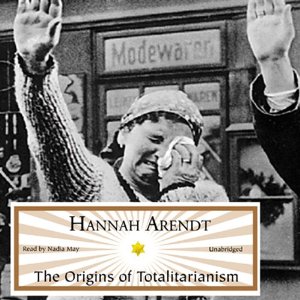


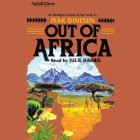

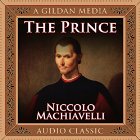
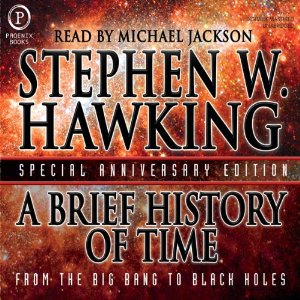







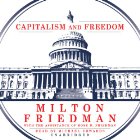
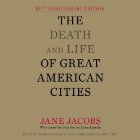




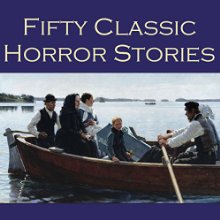

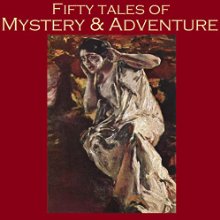

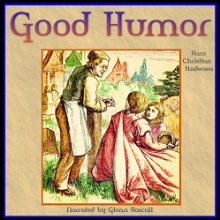

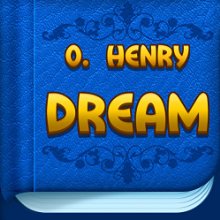

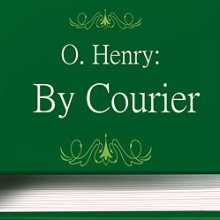
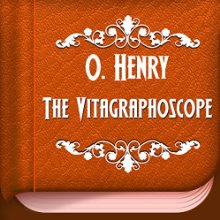

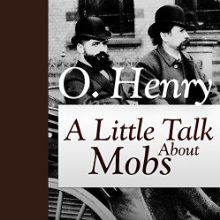
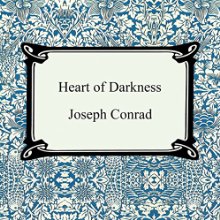


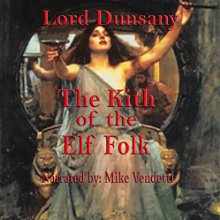
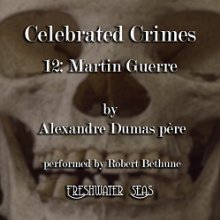
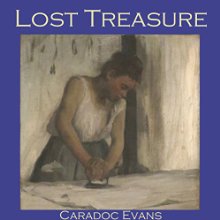

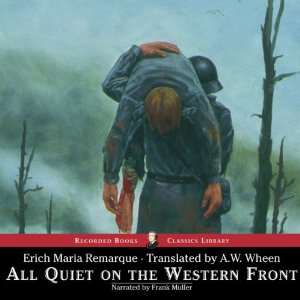

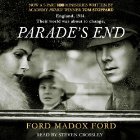



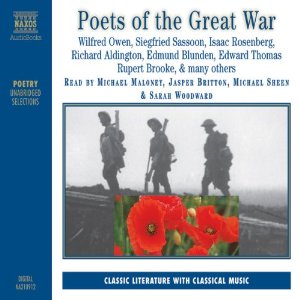







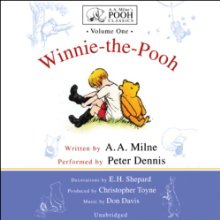



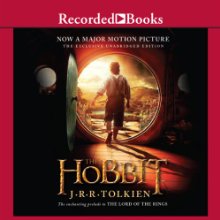


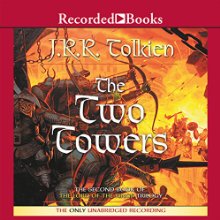



![Dracula [Audible Edition] (
UNABRIDGED) by Bram Stoker Narrated by Alan Cumming, Tim Curry, Simon Vance, Katherine Kellgren, Susan Duerden, John Lee, Graeme Malcolm, Steven Crossley](https://web.archive.org./web/20150309224218im_/http://ecx.images-amazon.com/images/I/51YI+gGb18L._SL220_.jpg)
